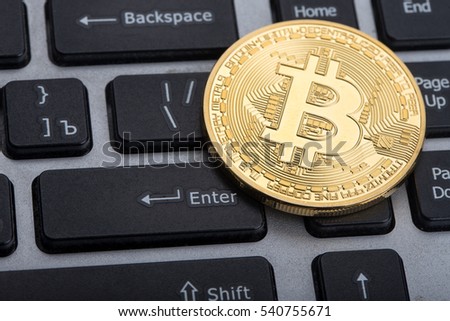Post by Clyde Thorburn SEO Specialist on May 22, 2018 7:45:39 GMT
If you want to purchase Bitcoin as an investment and you want to join the BitClub Network Company, so that BitClub can mine Bitcoin and other Crypto Currency on your behalf to grow a stable and increasing investment for you, please Join BitClub Here For Free. Once you join, you will be set up with a free lead account and receive follow up emails detailing how you can create a Bitcoin investment account with The BitClub Network. For any answers to questions Contact Clyde Thorburn Here.

Author : Hugh Kimura 16 January 2018
What is a Blockchain? Simply put, a blockchain is a database. However, there is one huge difference between how you probably currently think of a database and how a blockchain database works. In most cases, a traditional database sits on one computer or in one location. Even if a company has redundant servers around the world, the data might only be backed up between 3 to 5 locations. On top of that, these companies collectively spend billions of dollars a year on cyber security, to protect this data. With a blockchain database, the data can be backed up on potentially thousands of computers all over the world, for a much, much lower cost. The information in these databases is heavily encrypted and sometimes files are broken up into pieces, so even if one piece is exposed, it will not expose the entire file. If the information on one server does become compromised by hackers, the other copies of the databases have to “agree” that the compromised data was a legitimate change to the data. If the other copies do not agree, then the change is rejected and it is changed back to match the others. Obviously, this is an oversimplified explanation of the technology, but I hope that you are starting to see the benefits. Instead of just one point of failure, like on a single server, you now have multiple copies of the same database all over the world that is almost impossible to crack and will “fix” itself in the case of a hack.
This can also save a ton of money on cyber security software and services. Example. Let's say that a hacker gets into your bank's computer tomorrow and transfers all of your money to his account, then deletes any trace of the transaction. With today's technology, you would probably be screwed. But with a blockchain currency like Bitcoin, if one server was hacked and a fake transaction was inserted into the database, then it wouldn't match the transaction record on the hundreds other copies of the database. This transaction would be seen as a fake and rejected. Your money would be safe. This is one of the many reasons why blockchain technology is so exciting. The Characteristics Of A Currency To Be Aware Of. Although cryptocurrencies are all based on blockchain technology, they are not all created equal. Here are some differences that you need to understand to make informed trading decisions. Transaction processing speed. Total supply currently available. Will there ultimately be a limit on the total number of currency available? Will there be an unlimited supply of currency? Is there a real-world need for this software/currency? Real world adoption of the technology. Any big investors in the project? Does the use of the software make sense? Do the founders have a reputable background? These are just a few of the characteristics that you should look at.
However, once you start digging into these details, you will begin to see which projects could work for their intended purpose and which ones are probably scams. This understanding will also allow you to assess the long-term viability of these different currencies and which ones will be more desirable in the future. Example. Tether is a cryptocurrency that wants to be the proxy for fiat currencies. So there is a Tether USD version, EUR version, etc. But each one is pegged to the value of the currency, so you can never make any money trading it. It is purely to provide stable and liquid transactions. So one USD Tether will always be worth about $1. If you didn't know this and bought a bunch of it, thinking that it's cheap compared to Bitcoin, you will tie up your money in an asset that will never appreciate. Sure, you won't lose money either, but you would have lost out on other opportunities. So understand the nuances of each crypto, it's very important. What are the Different Cryptocurrency Use Cases? Almost every currency software has a different intended purpose and individual implementation, with inherent strengths and weaknesses. It's like Windows vs Mac. …or iOS vs Android. Here are a few examples of the different types of cryptocurrencies and what they are designed to do. This is not an exhaustive list, just a sample. Note. I don't necessarily support these currencies, I'm just using them as examples of the different use case niches within cryptocurrencies.
Read more about Bitcoin and The BitClub Network.
